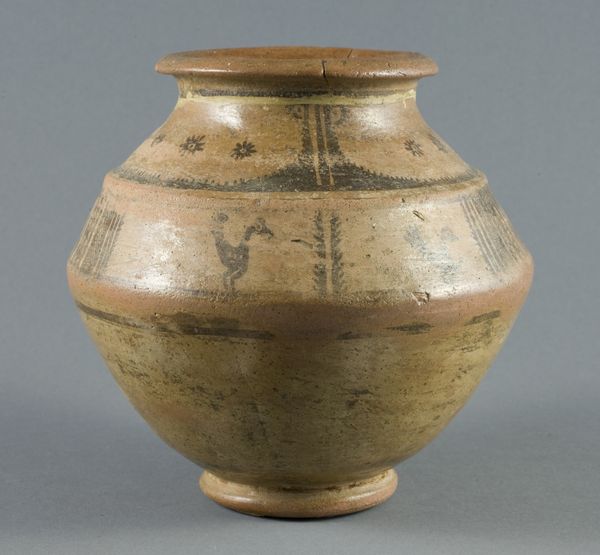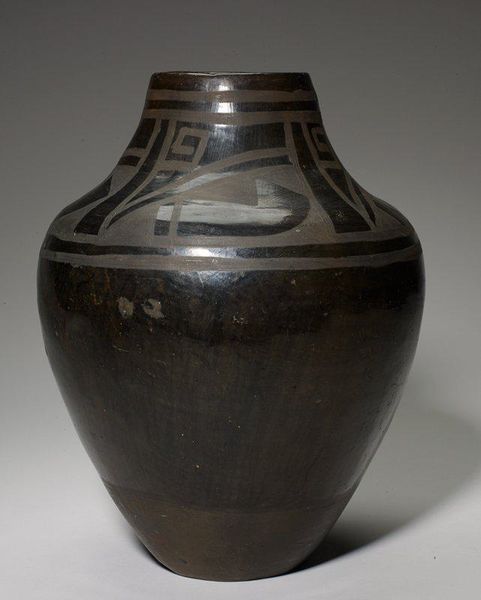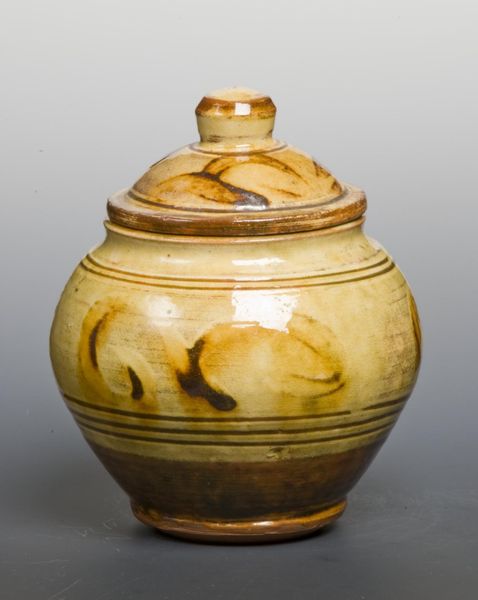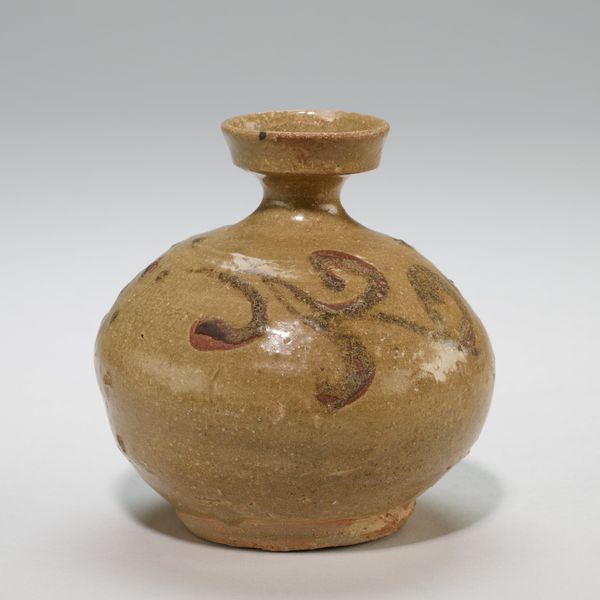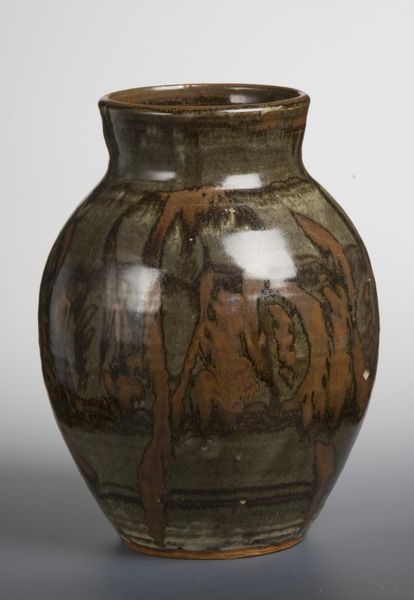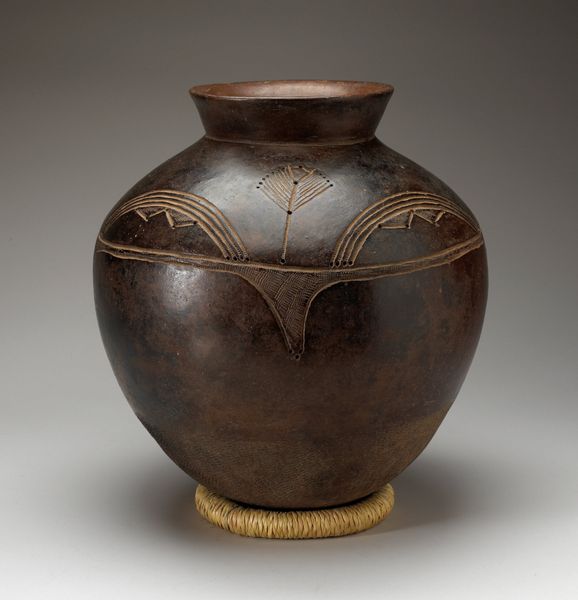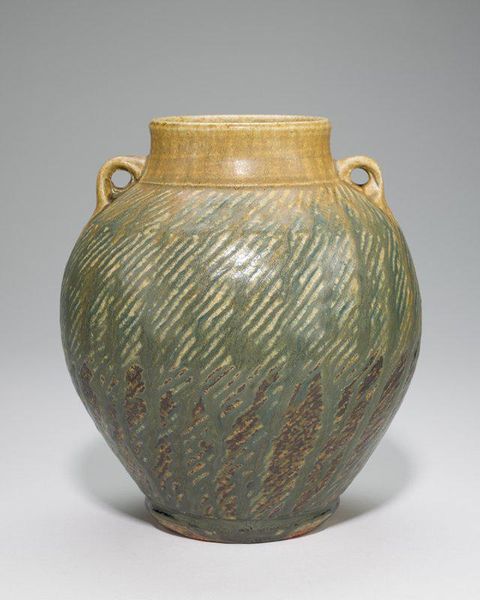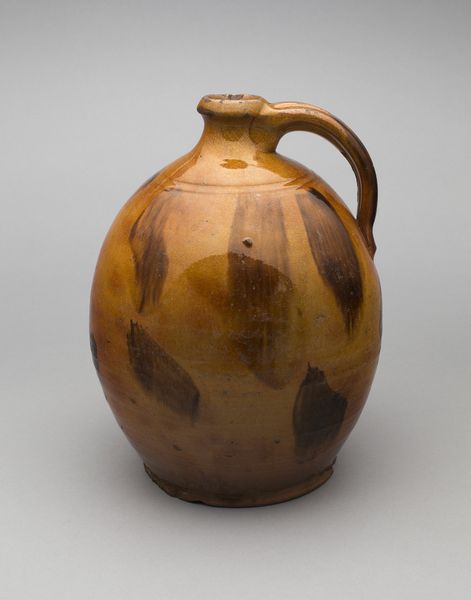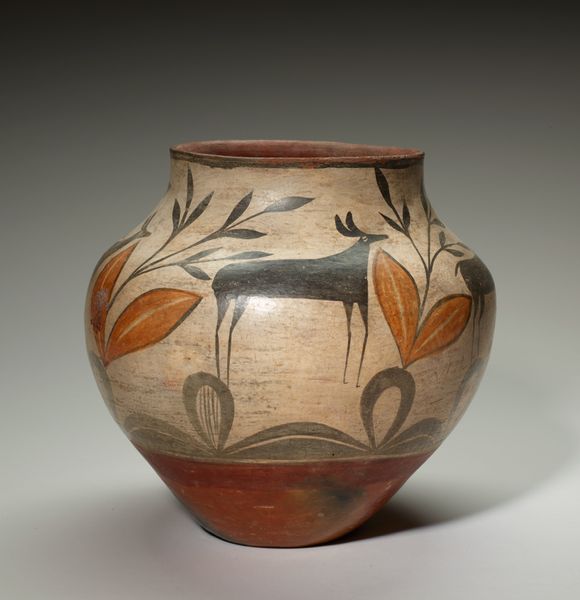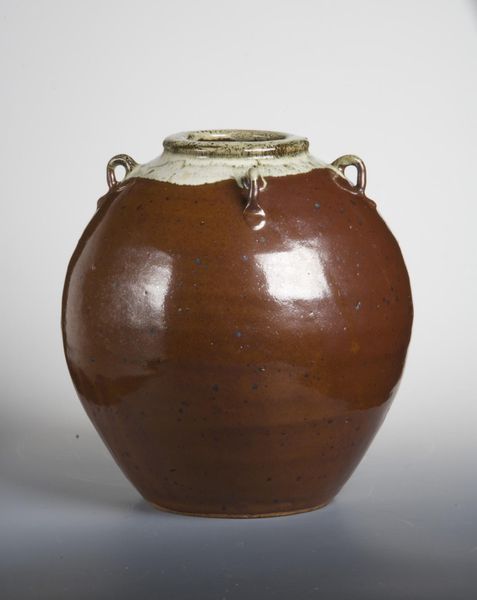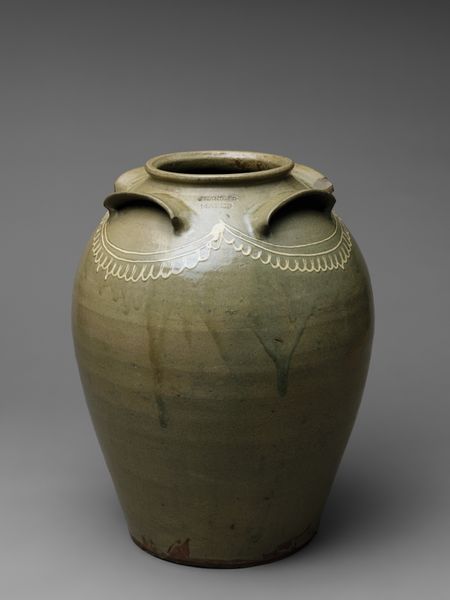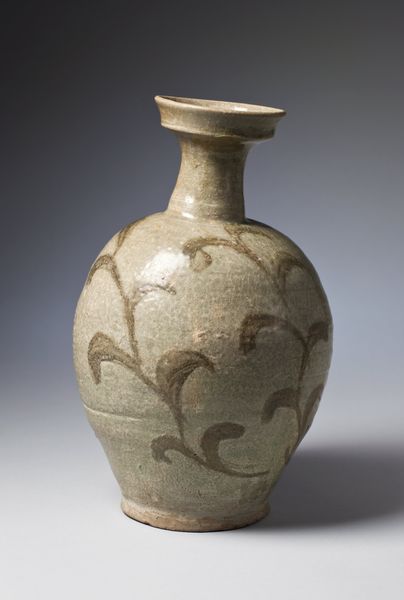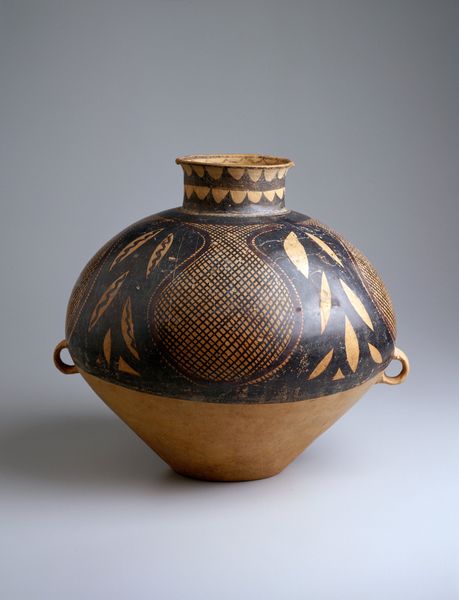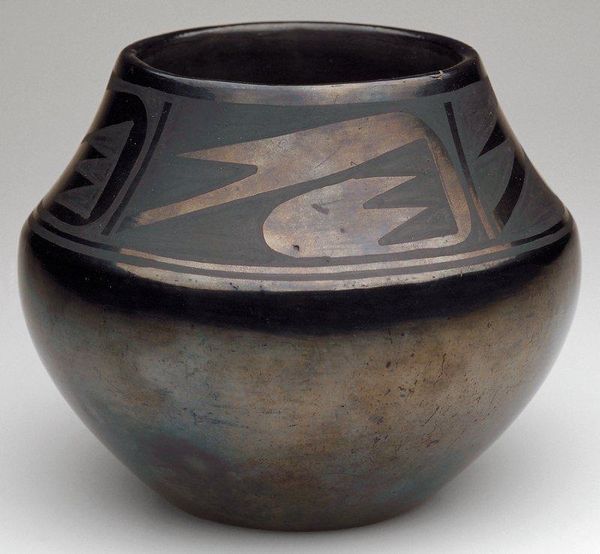
ceramic
#
asian-art
#
ceramic
#
stoneware
#
abstraction
Dimensions: 7 1/4 x 8 in. (18.42 x 20.32 cm)
Copyright: No Known Copyright
Curator: Let's discuss this beautiful "Vase" created around 1940 by Hamada Shoji. It's currently held at the Minneapolis Institute of Art. What are your first impressions? Editor: I'm immediately drawn to the glazing; it seems to dictate so much of the piece’s mood and form. The brown shades evoke a sense of earthy, subdued warmth, don't they? The glossy finish allows us to observe and decode the abstraction through the play of light, giving the figures both volume and movement. Curator: Indeed. This piece exemplifies Shoji’s approach to ceramics by highlighting the role of folk traditions. We observe Shoji's respect for the functional origins of pottery while emphasizing the labor involved, allowing imperfections and process marks to become integral parts of the work. Editor: And in looking closer, one notes the stylized plant motifs—the branches are really compelling in their abstract form and rough carving, adding such subtle texture to the curved surfaces. I’m quite captured by the deliberate use of the dark glaze near the top and how it seems to flow slightly, drawing our eyes down. It’s controlled yet gives the impression of organic, spontaneous movement. Curator: Precisely. It reflects the tenets of the Mingei movement to embrace humble materials and local production to reach an honest and natural beauty accessible for common people's daily life, advocating the value of craftsmanship and rejecting elitist art. Editor: How do you feel that fits in Shoji’s work then, given his later international success? Was he able to continue upholding those tenets of local production as his market grew? Curator: He maintained those values, I would argue, because the success supported not only his production but also a tradition within the local craft community, promoting the sustainability of local industry. Shoji elevated what others might have deemed commonplace or functional objects into highly valued works. Editor: So, in his blending of practical craftsmanship and distinctive design, Shoji invites a deep, sensory observation—ultimately proving that an everyday item can hold considerable artful value. Curator: Absolutely. And seeing this stoneware today allows us to continue the conversations on tradition, skill, and the significance of humble origins.
Comments
minneapolisinstituteofart about 2 years ago
⋮
Designated a "Living National Treasure" in 1955 for his folk art style ceramics, Hamada was enormously influential in Japan as well as in the West. Along with Yanagi Soetsu (1889-1961) and Kawai Kanjiro (1890-1966), he founded the Japan Folk Art Association and provided the inspiration for Japan's folk art movement. He trained in the decorative porcelain tradition under Itaya Hazan and Tomimoto Kenkichi, but after working with the British potter Bernard Leach in the early 1920s, he became interested in utilitarian folk ceramics. This interest took him to Korea and Okinawa. He ultimately developed a sturdy style characterized by rapidly applied glazes and painted motifs that are remarkably spontaneous and self-assured.
Join the conversation
Join millions of artists and users on Artera today and experience the ultimate creative platform.
